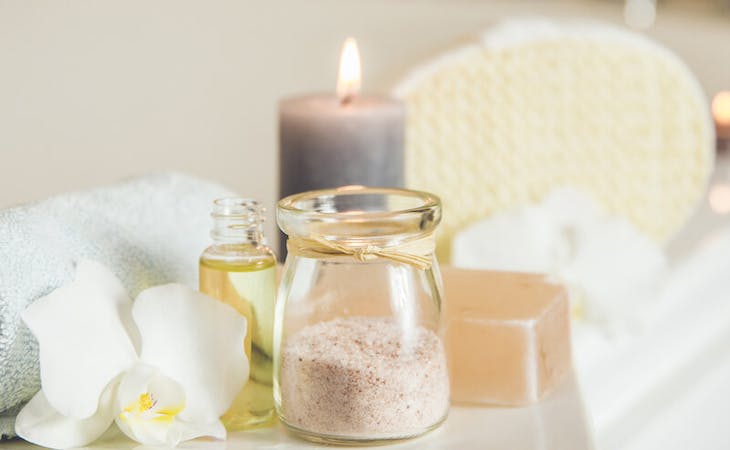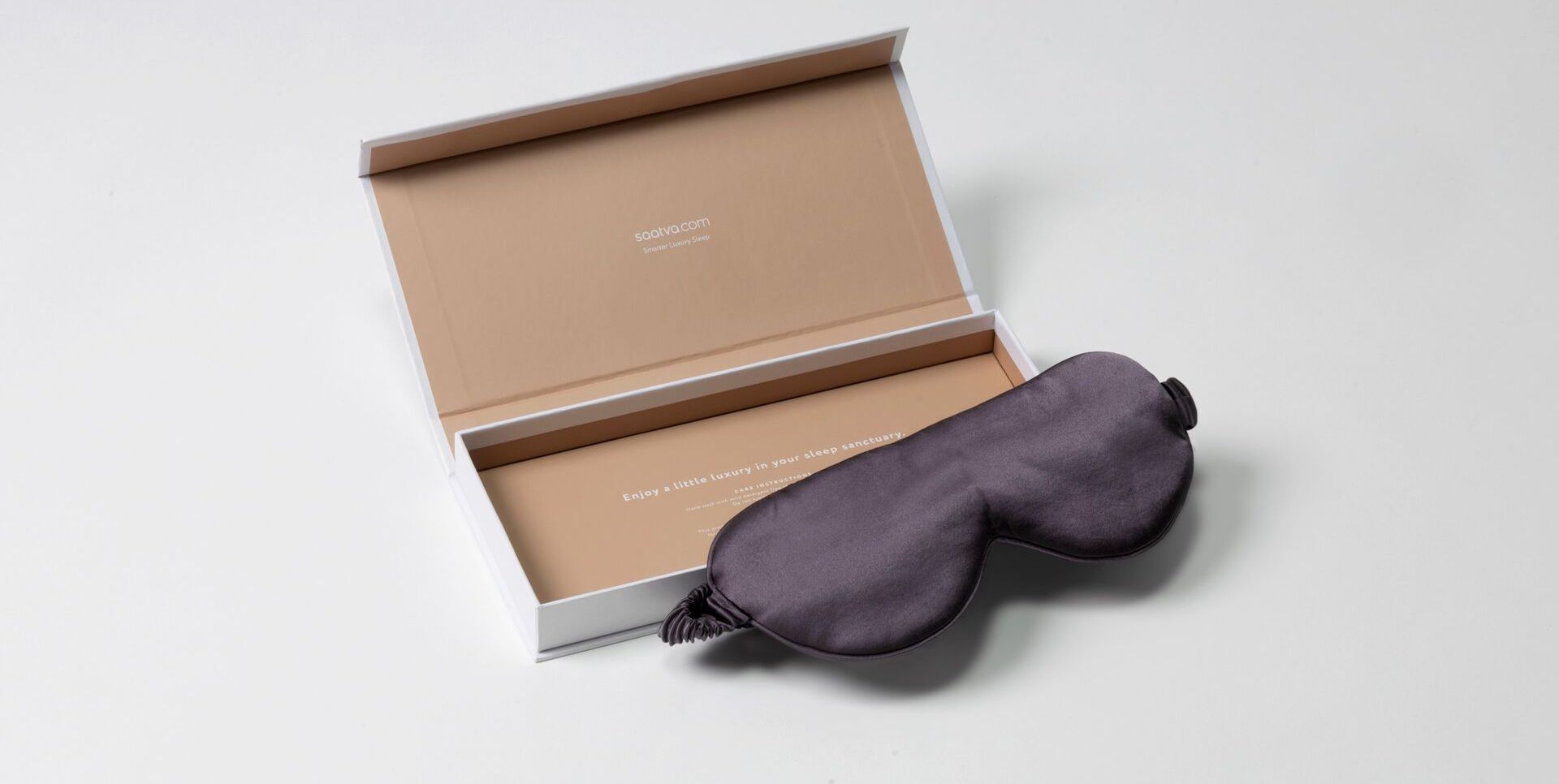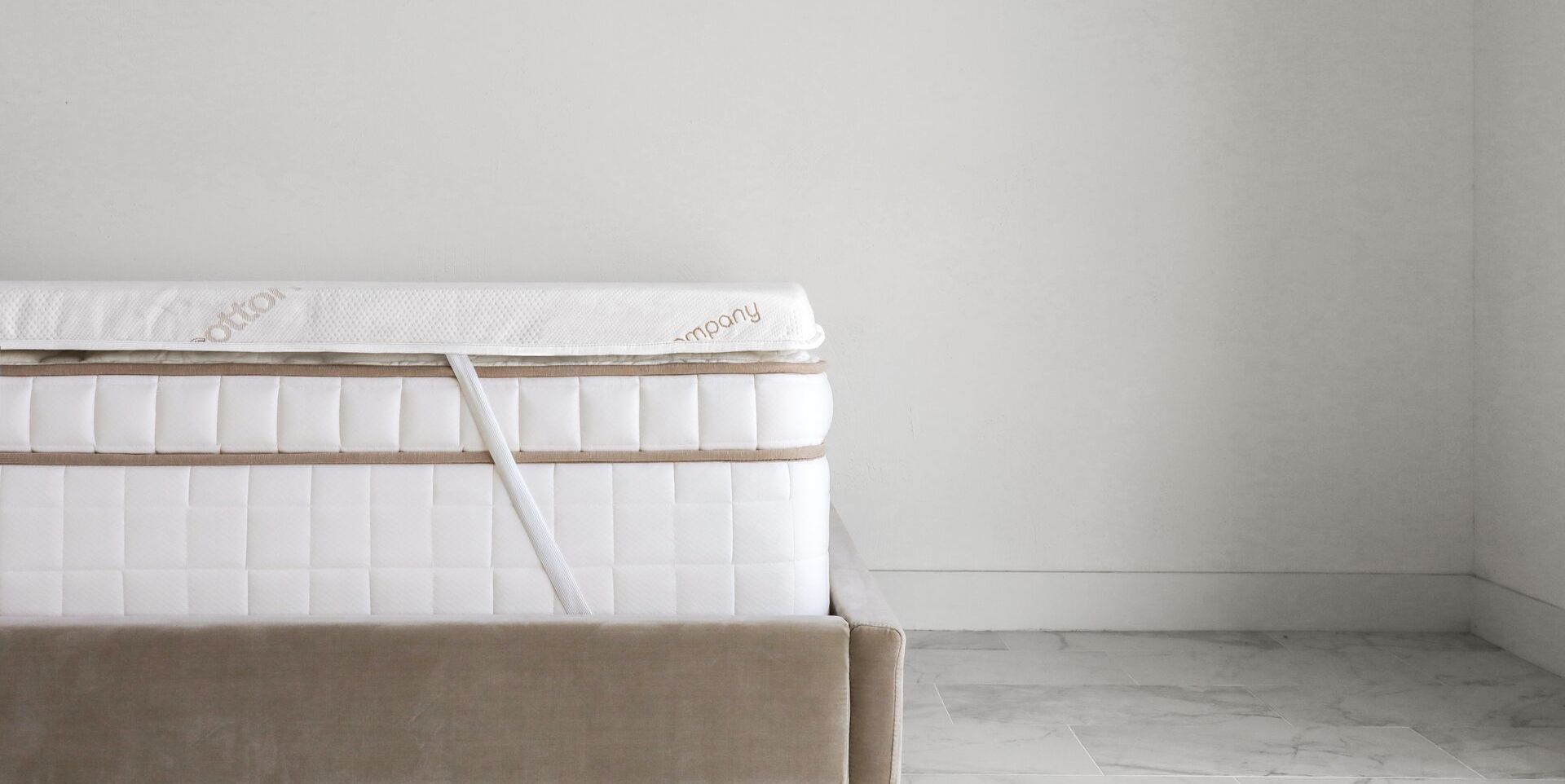All of the stress and anxiety you’re experiencing these days can do a serious number on your ability to get a good night’s sleep. The solution: Incorporating relaxing activities into your nighttime routine to help prep your mind and body for bed. Enter the “at-home sleep retreat.”
While travel is out of the question for the indefinite future, you can still enjoy the benefits of a sleep retreat without leaving your house. Here, learn more about sleep retreats and how to create the experience on your own.
What is a sleep retreat?
Sleep retreats are luxury resort stays focused on improving your sleep quality. “We live in turbulent times where stress and pressure are part of the daily routine,” explains Laurent Odillard, director of sales and marketing at the Shanti Maurice Resort & Spa on the island of Mauritius in the Indian Ocean, which offers a five- to seven-day Shanti sleep package. “But people are becoming more conscious about their well-being, and sleep is a part of that.”
On a sleep retreat, you might work with sleep specialists to identify what’s disrupting your sleep, eat and drink according to a sleep-promoting diet designed by nutritionists, or follow a schedule led by holistic health professionals, yoga and meditation instructors, or massage therapists.
The Shanti sleep package, for example, includes yoga classes, breathing exercises, reiki massage, sleep therapy, and more. At another retreat at the Lanserhof in Germany, a sleep medicine and chronomedicine package provides an in-depth sleep health evaluation including a 24-hour heart rate variability measurement as well as a sleep lab screening.
This kind of intervention could have long-term benefits too. A one-week wellness retreat improved mental health and lowered blood pressure, with benefits lasting six weeks, per a 2017 study in the Journal of Alternative and Complementary Medicine.
How to create a sleep retreat at home
Top-notch sleep retreats can be expensive: A five-night sleep retreat at Six Senses in Bhutan costs $1,460 per person, while a four-night stay at Peak Health in the Swiss Alps begins at $2,260. (And that’s before you factor in airfare.)
The good news—especially since none of us is jet-setting off to a luxury resort anytime soon—is that there are numerous mini-luxuries and sleep science insights you can easily bring into your own home. Here’s how to prime your sleep space, body, and mind for better rest, sleep-retreat style.
Spend a little bit of time and energy to create a sleep haven
While falling asleep to waves crashing on a nearby shoreline sounds nice, there are other ways to evoke the soothing minimalism of a seaside getaway. You’ll just have to do a little legwork (it’ll pay off!).
- Choose the right lighting: According to the National Sleep Foundation (NSF), LED lights are the best option for your bedroom because they emit less sleep-disrupting blue light than traditional incandescent bulbs. Go for LED bulbs with no higher than 3,000 kelvins (the unit used to measure color temperature). You can also consider buying programmable Philips smart light bulbs to mimic natural evening light and reduce blue light exposure. This move could potentially help your body produce the sleep hormone melatonin and help you fall asleep faster, per a recent study in the European Journal of Neuroscience.
- Add relaxing bedroom accessories: Next, consider blackout curtains and a bedside sleep mask. Both will help to keep your bedroom dark—another way to encourage the production of melatonin. Also, making your bedroom feel a little bit special can go a long way toward better sleep, explains Carolyn Burke, certified sleep coach with The Sleep Advisor, a sleep-focused website. Light a few of your favorite candles or splurge on a memory foam mattress topper and a fancy set of freshly-laundered sheets.
- Organize, organize, organize: Lastly, declutter your space. People who make their beds every day are more likely to sleep well, per a survey conducted by the NSF. And really, is there anything more luxurious than peeling back crisp, clean sheets and sliding in for a good night’s sleep?
Take a morning walk through nature
If you live in a place where you can safely spend time outside, start your at-home sleep retreat with an easygoing morning walk in a nearby park or along the water. Many sleep retreats feature morning hikes or yoga, which research shows can boost sleep quality and help dial down stress levels by lowering levels of the hormones adrenaline and cortisol.
In particular, getting outside in the a.m. hours can help solidify a healthy sleep schedule, as exposure to sunlight helps regulate your circadian rhythm, your body’s internal clock.
Wind down with an at-home spa treatment
Resort spas ooze relaxation, which is why massages and facials are a big part of sleep retreats. An hour or two before bedtime, treat yourself to a long soak in the tub, which may promote deeper, more relaxing sleep due to the natural cool-down period afterward. While you soak, breathe in soothing essential oils with a diffuser or bubble bath; scents such as lavender can boost your mood and sleep quality, research suggests.
If you have time, make massaging yourself with a lotion you love part of your bedroom routine. Not only is it relaxing, but if you start to expect it before bed, that can lead you to look forward to it—and help ease you into bedtime.
Listen to a soothing soundscape
Sleep retreats often focus on blocking out loud noise and replacing it with a soothing sound. That’s because noises and disruptions make it harder for you to fall and stay asleep.
A few examples: The Benjamin, a luxury boutique hotel in midtown Manhattan, has a Rest & Renew program that offers noise machines and a lullaby music library. The Shanti Maurice Resort & Spa, meanwhile, includes Tibetan Sound Massage, which aims to soothe with the vibrations of singing bowls.
Your at-home version: Pick a sound that’s relaxing to you (most are available on white noise apps or devices), whether that’s the sound of ocean waves, a rainstorm, or a Tibetan Singing Bowls meditation playlist on Spotify, suggests Alex Savy, certified sleep coach and CEO of SleepingOcean, a website oriented around getting better sleep.
Practice yoga and meditation
Many sleep retreats aim to instill a deep state of relaxation with yoga nidra, an ancient guided meditation you do while lying down. The practice can help ease you into a sleep-like state rather than worrying about how long it’s taking you to fall asleep. An instructor more or less guides you to slowly withdraw from your senses and enter a more meditative state of consciousness. Before you turn off the light, follow one to help let go of all those stressors.
For more relaxing nighttime ideas, here are the best self-care activities to calm your mind and body.







